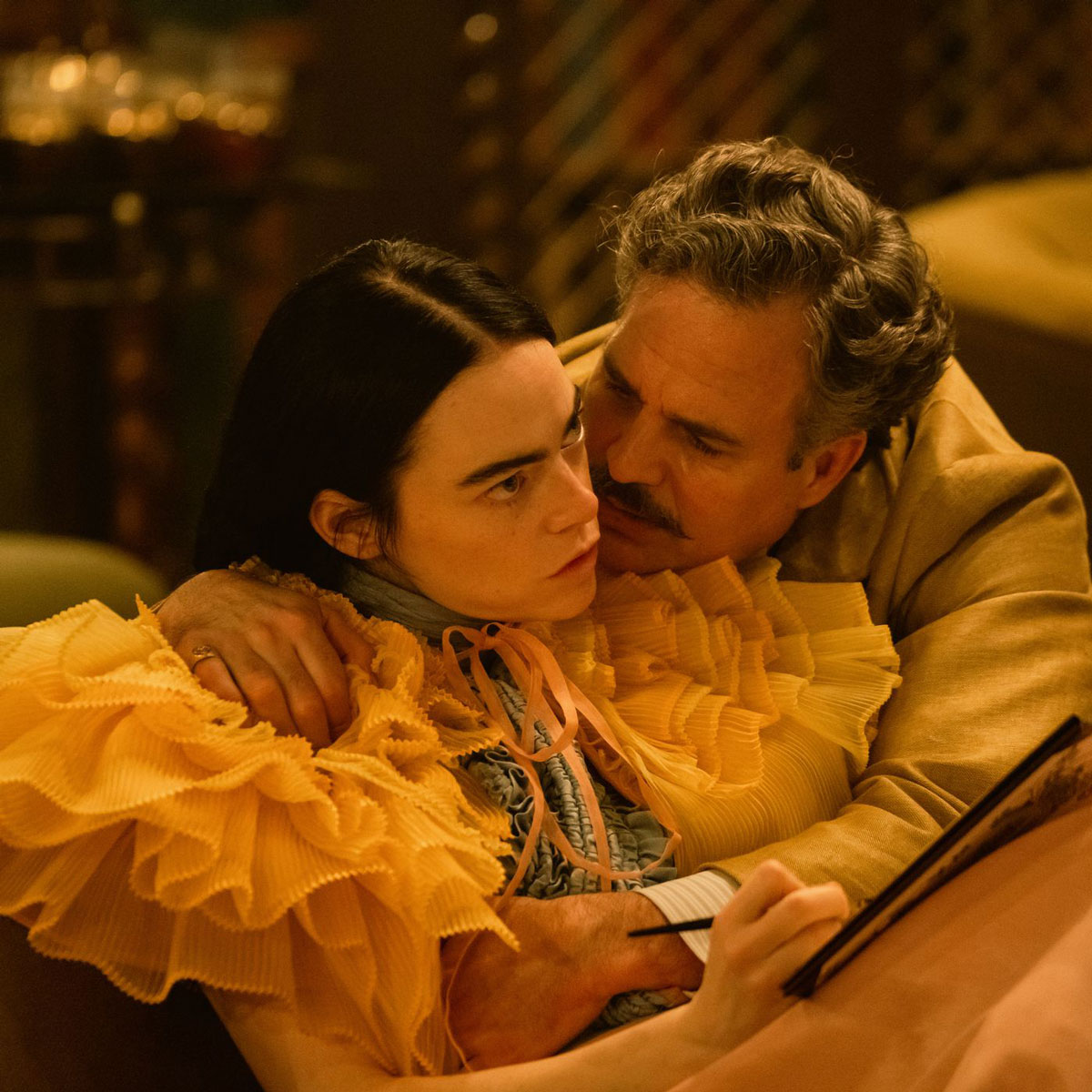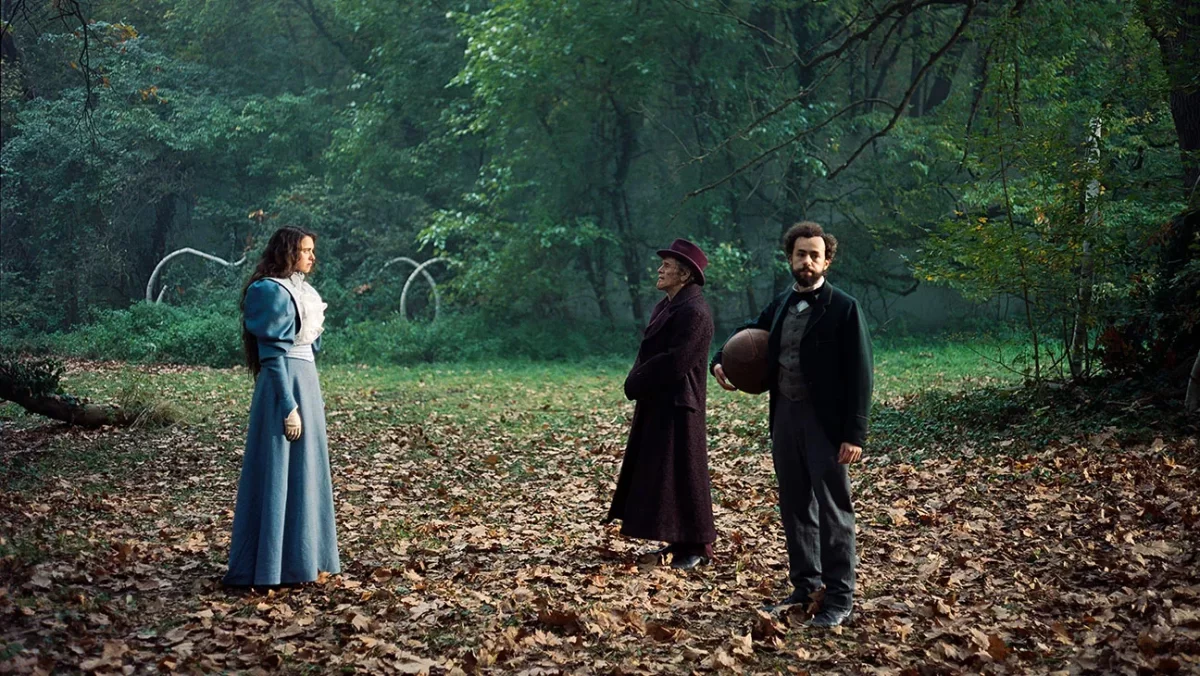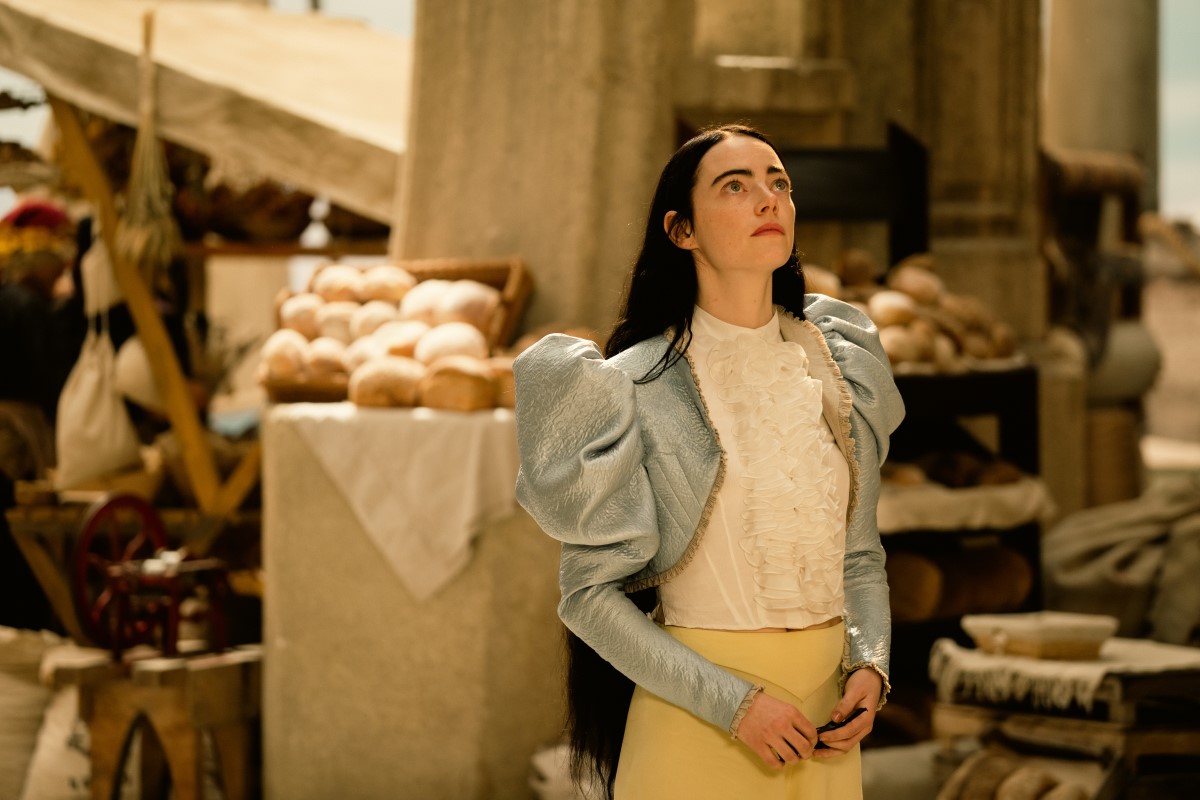In Victorian London, scientist Godwin Baxter resurrects a young woman who died by suicide, transplanting the brain of her unborn child into her body. With an adult’s body and an infant’s mind, Bella lives under Godwin’s protection, her mental faculties rapidly maturing. Eager to experience the world, she escapes with a cunning and dissolute lawyer. Free from the biases of her era, Bella finds a way to emancipate herself, upending society’s rules.
by Alessandro Uccelli
In a pseudo-Victorian London, Dr. Godwin Baxter (Willem Dafoe), also known as God, a son of a surgeon who subjected him to every kind of experimentation, leaving him disfigured and a eunuch, teaches at the medical faculty. Within his home, an abode of visionary modern style (Art Nouveau or Jugendstil, if you prefer), Baxter conducts surgeries on animals and humans alike. His endeavors birth the charming, spirited garden chimeras cluttering his backyard, but most crucially, they lead to Bella (Emma Stone), a young woman born from the fusion of a suicidal woman’s body retrieved from the Thames and the brain of her unborn child, who miraculously survived her mother’s suicide.
From the get-go, we’re plunged into an extreme situation, a hallmark of Yorgos Lanthimos‘s cinema, presenting a microcosm with slightly altered physical rules, a steampunk dystopia where deciphering the symbolic machinery of characters, especially Baxter – God himself, as he resurrects Bella and creates a peculiar Eden for her, is effortless. However, this time it’s an adaptation, penned by Tony McNamara of The Favourite fame. Poor Things is a 1992 novel by Scottish writer Alasdair Gray, clearly nodding to Mary Shelley’s Frankenstein, even in Baxter’s given name, Godwin, the maiden name of the English novelist, daughter of philosopher William Godwin. But there’s another enlightenment at play here, reminiscent of Voltaire’s Candide and to some extent Rousseau’s Emile, along with the trappings of a cynically desecrated fin de siècle scientific positivism.

Visually, the steampunk element, a technologically enhanced 19th century, sets this film apart. Gray, also an artist, provided illustrations for the original book, but Lanthimos seems to use these more as inspiration than strict style guidelines. Alongside production designers James Price and Shona Heath, the film impressively emphasizes the organic, almost anatomical aspects of Art Nouveau. Holly Waddington’s costume designs seamlessly integrate, even when they lean into anachronism, particularly with Bella’s increasingly short or transparent outfits.
Bella is a tabula rasa, initially an infant in an adult’s body, relearning life from the most basic bodily functions. To aid her growth and in his everyday activities, Godwin employs Max McCandles (Ramy Youssef), the only student who doesn’t view him with contempt. Max is inevitably enchanted by Bella’s progress and her unique grace, not just her physical beauty but her unfiltered view of reality, initially tailored by God. It’s with this same unfiltered grace that Bella decides to explore the world and sexuality with Duncan Wedderburn (Mark Ruffalo), a somewhat sordid and debauched lawyer, starting in Lisbon (just like Candide and Pangloss) and leaving Max in respectful standby.

Bella’s education is less about formal instruction and more about allowing empirical growth, initially shielded from external influences. This journey involves the gradual discovery of pleasure, laid bare in a process that exposes repressive mechanisms and social conventions (an ego built without the super-ego’s limitations, one might say, if psychoanalysis hadn’t been politely left out). Naturally, this generates the film’s main comedic moments, from the scene with Baxter’s housekeeper, who reacts with surprising restraint to Bella’s innocent invitation to masturbate – even going so far as to touch her “hairy parts” for shared happiness, demonstrated practically with a cucumber – to Bella’s utterly uninhibited conversation with aristocrat Martha von Kurtzroc (Hanna Schygulla) on a steamship to Lisbon about the latter’s waning sexual activity, met with intelligent and amused response.
The humor arises precisely from the clash between Bella’s innocence and the societal conventions and hypocrisies we, as viewers, have internalized, with her complete lack of concepts like guilt or shame. It’s hard to imagine the film without Emma Stone, perfect and extraordinary, her slender body and child-like features effortlessly transitioning the character from a pre-cognitive adult doll to a figure of unprecedented and complex emancipation. When Bella turns to prostitution in Paris, approaching socialism, her body is affectionately dubbed “my means of production.”

Regarding dolls and emancipation, comparisons to Barbie are inevitable, yet Bella might just outshine her. This “doll pulled from the trash,” reanimated within Lanthimos’s tight, wide-angle, intense framing, is presented to the world unfiltered by any multinational toy brand, boasting an unimaginable freedom in a U.S.-branded production. And in the end, the commiserative “Poor Things” in the title seems to reflect Bella’s gaze upon us, rather than the other way around. “Polite society will kill us.”
Cineforum, January 24, 2024





